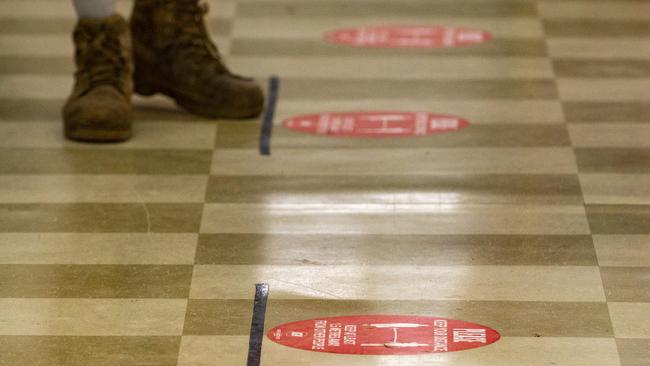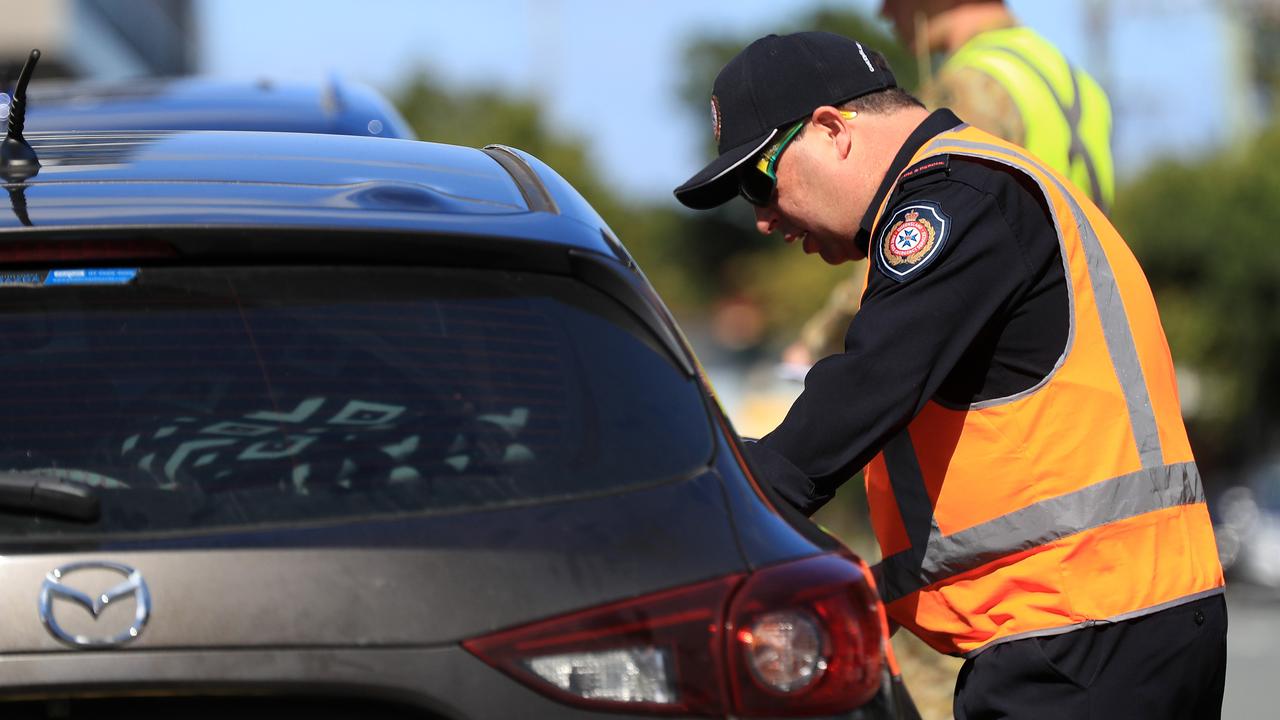House numbers could be used to relax social distancing
Queensland research has come up with a novel and safe way to relax COVID-19 social distancing — by allowing people to return to work based on the number of their house. HOW WOULD IT WORK?

QLD Coronavirus News
Don't miss out on the headlines from QLD Coronavirus News. Followed categories will be added to My News.
QUEENSLAND research has come up with a novel way to relax COVID-19 social distancing — by allowing people to return to work based on the number of their house.
A study, co-authored by a Queensland University of Technology statistician which appears today in the British Medical Journal urges governments to consider a slow release where people in odd numbered houses could have relaxed restrictions on odd days in the month and people in even number houses on even days.
Professor Adrian Barnett, a statistician with QUT’s School of Public Health and Social Work, said the odds and evens strategy would be a good way to help avoid a return to lockdown.
“Governments in Australia and elsewhere are seeking to balance competing priorities. Social distancing has certainly been proven to reduce the rate of transmission of COVID-19 but has had a negative impact on the economy and created other health issues,” Professor Barnett said.

“A major problem with relaxing restrictions too quickly is the limited evidence on how this will affect transmission of the virus and no-one wants to see another wave of infection and deaths which would lead to a return to lockdown. We propose an interim solution in which allowing people to return to a less-restricted life should be based on odd or even house numbers. For example, people in odd numbered houses have relaxed restrictions on odd days in the month (1st, 3rd, etc) and people in even number houses on even days (2nd, 4th, etc),” he said.
The statistician said this strategy halved the population mixing, which reduced the risk of a new wave occurring, and created useful data for judging whether restrictions could be further relaxed or should be tightened.
Professor Barnett said there were precedents in place dealing with traffic pollution and congestion, with daily restrictions based on odd-or-even vehicle number plates adopted in major cities worldwide including Beijing, Rome, Paris and Mexico City.
“As for COVID-19, we are seeing similar national policies such as in Columbia where restrictions have been implemented by gender, with men allowed out some days and women on others, and in Bolivia, Honduras and Panama they are using national ID numbers to apply restrictions,” he said.
“An advantage to the odds-and-evens approach is that it creates multiple randomised experiments that could be used to study how the virus spreads, because on every day we have similar groups of people who are exposed and not, creating an ideal natural experiment. It should also make it easier to spot a new wave of infection earlier, because there would be an alternating pattern in house numbers in people reporting symptoms,” he said
Professor Barnett added an important factor for governments to consider with such a policy was the length of time to relax social isolation for each group.
“We have looked at it being implemented using alternate days but governments might choose a different duration, such as by week which will have different health and economic implications. It could also start on a modest base and evolve over time,” he said.
The study acknowledges there will also be challenges in enforcing a policy based on house number and there will always be people who choose not to obey the rules. Despite the potential problems, this approach partially restarts the economy for a lower risk and provides valuable experimental data, so it has multiple benefits compared with relaxing restrictions en masse.
Professor Barnett co-wrote ‘An evidence-based exit strategy for relaxing social distancing measures to prevent the spread of SARS-CoV-2’ with Professor Philip Clarke from the Centre of Health Policy at the University of Melbourne, Laurence Roope from the Health Economics Research Centre, University of Oxford, and Professor Amanda Adler, director of the University of Oxford’s Diabetes Trials Unit.



